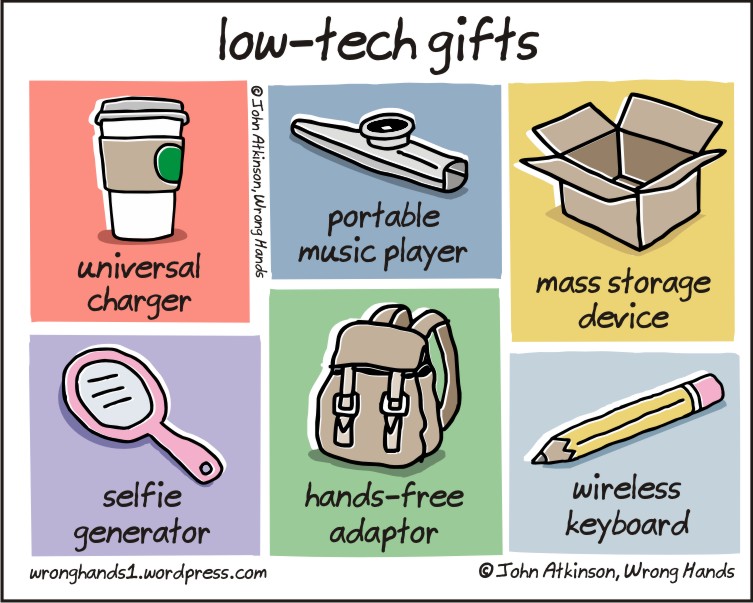 |
Craig White's Literature Courses Scenarios (or styles) for Literature of the Future Low-Tech or actual reality rough, intimate, messy, hungry, warm, real Contrast with High-Tech |
 thanks to http://www.lowtech.org/intro/ |
Low-tech science fiction reacts against the bewildering and dehumanizing aspects of rapid technological change represented by High-Tech or Cyberpunk scenarios.
Instead of virtual reality's escapism into a fantastic cyberspace, low-tech sf encourages human re-engagement with actual reality, particularly biological human existence; e.g. family relations, physical contact, organic food versus synthetics (think raw vegetables versus a nutrition capsule).
![]()
Narratives and aesthetics
Narrative conflict rises from dehumanizing technology's threat to the individual or traditional biological family. Renegotiation of human identity relative to technology (esp. virtual reality) restores biological and emotional connections to actual reality.
![]()
Unlike the male drifters, free agents, punk loners, or cowboys who populate cyberpunk literature, characters in low-tech sf are often women or children who are sensitive to family relations or their loss.
![]()
Setting
Sterile, dehumanizing technological environments or post-apocalyptic landscapes provide long, unchanging lives detached from normal society and natural environment.
Some memory or dissatisfaction stimulates human characters to recall and recover or yearn for a life more connected to the dirt, blood, and sweat from which the human species evolved.
![]()
Time-frame relative to narratives of the future
Low-tech futures are rarely apocalyptic, though they may be post-apocalyptic or share Cyberpunk's tone of "inverted millennialism," in which the dystopian setting looks back on a previous historical or personal moment at which an earlier, better world was lost.
![]()
Utopia or dystopia? / Decline or Progress?
The retro-mystique of low-tech sf posits a contemporary dystopia that will only get worse. Thus decline instead of progress.
However, low-tech protagonists' rebellion against dystopia may promise escape into a small-scale utopia like the family or other members of a community outside the high-tech world (as in the rural family and community in "Bears Discover Fire").
![]()
Literary and Popular Appeals:
![]() human family relations as
biological and emotional truths
human family relations as
biological and emotional truths
![]() instincts, family
identities + mistrust of outsiders,
restoration of family unit
instincts, family
identities + mistrust of outsiders,
restoration of family unit
![]() humanity triumphs over
bureaucracy, technology
humanity triumphs over
bureaucracy, technology
![]() down to earth
down to earth
